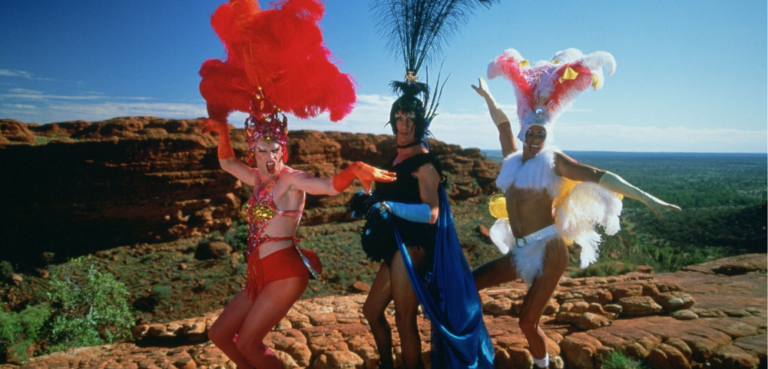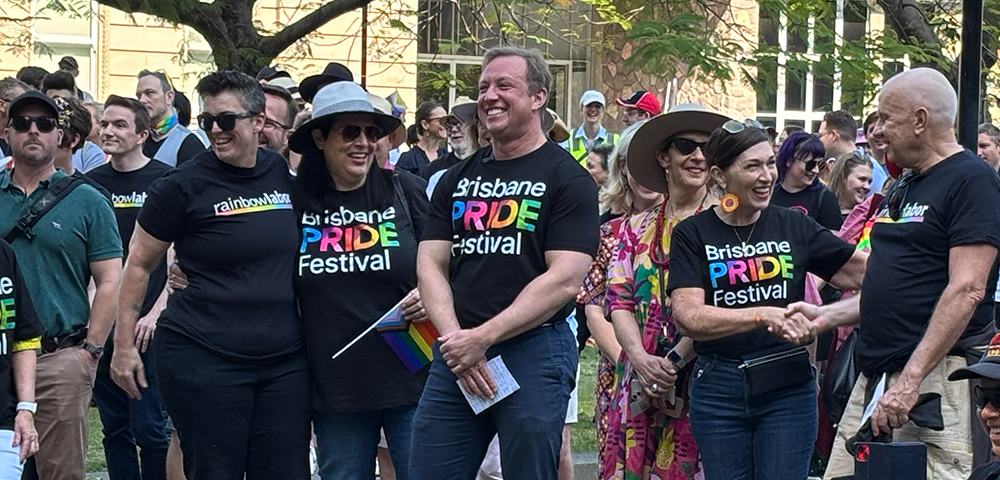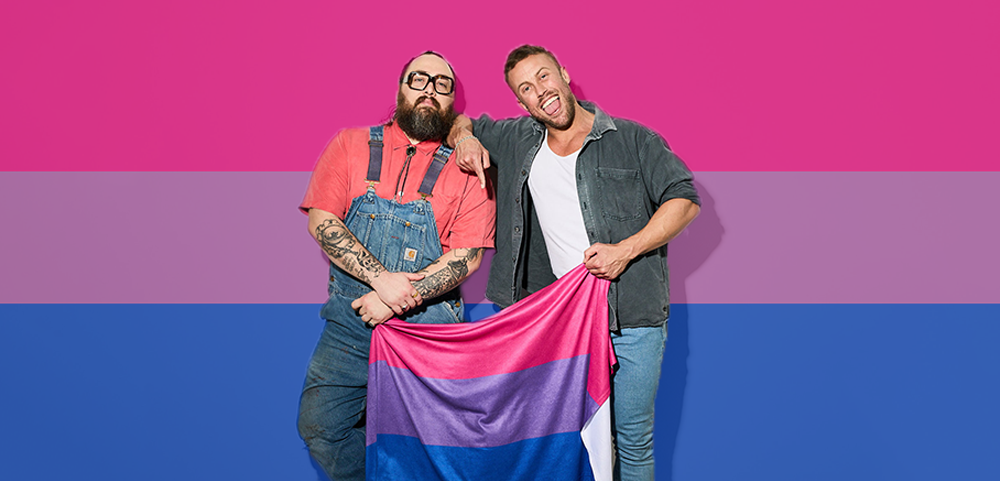
Gary Lonesborough on Writing, Identity, and the Power of Hope

The rise to literary success for Gary Lonesborough has been a swift and unexpected journey for the author as he debuts his third book this year.
From his debut The Boy from the Mish, to his third and most personal novel, I’m Not Really Here, Lonesborough has captured the hearts of readers with his authentic portrayal of queer Indigenous teens.
His unique voice and experiences have made him a multi-award-winning author in just a few short years, with his stories offering a rare blend of honesty, hope, and representation that is desperately needed in the world of young adult fiction.
Gary Lonesborough on finding success
Reflecting on his journey as an author, Lonesborough admits the recognition has been “pretty crazy.”
His first award, Booktopia’s Favourite Debut Book Award, was only the beginning, with both of his previous novels earning accolades and nominations. More recently he has found himself a finalist for the Prime Minister’s Literary Awards, amongst some of Australia’s top writers, for his latest work I’m Not Really Here.
“It just blows my mind,” he says, “out of all the books that are getting published each year, mine are getting that higher recognition.”
But with the success comes a sense of humility.
“I’m still, you know, three years later, I don’t really know how to accept praise,” he confesses.
Despite the overwhelming recognition, Lonesborough remains grounded and grateful for the way his stories have resonated with readers.
One of the key factors in Lonesborough’s appeal is his ability to tell stories that feel both deeply personal and universally relatable. His books are not just about queer characters—they are about queer Indigenous characters, a perspective that remains largely underrepresented in YA fiction.
The importance of telling queer Indigenous stories
I’m Not Really Here tells the story of Jonah, a gay Indigenous teenager who moves to a new town with with father and brothers in the years following the unexpected death of this mother.
“I’m writing books about queer Indigenous teens or I’m shining lights on Indigenous issues in young adult fiction that aren’t really present in the market at the moment,” Lonesborough explains.
While there has been a gradual increase in stories by Aboriginal and First Nations writers, his novels stand out because of the “queer angle” that adds another layer of representation to his works.
Lonesborough’s stories also resonate because they are authentic to his lived experiences.
His latest book, I’m Not Really Here, is perhaps his most personal yet, drawing heavily from his own life as a teenager.
“So much of the story, and so much of Jonah, is very much drawn from my own teen years,” he shares.
The emotional core of Jonah’s journey is rooted in Lonesborough’s own experiences. “A lot of it, I’d say most of the story, is true,” he admits, “driven from the actual experiences I’ve had.”
That authenticity is what gives I’m Not Really Here its emotional depth. As readers follow Jonah’s story, they don’t feel like they’re merely reading a book—they feel as if they’re reliving intimate moments of someone’s life.
The rawness of the emotions is palpable, something Lonesborough himself acknowledges. “You can definitely feel the intimacy with the experience,” he says of the deeply personal nature of the story.
Finding hope, love and happiness
In addition to its emotional honesty, I’m Not Really Here offers readers something that is often missing in queer stories: hope.
“I kind of think of every story I write as something that I would have liked to have read when I was a teenager,” Lonesborough explains.
For him, Jonah’s journey is about more than just coming to terms with his identity—it’s about finding love, happiness, and a sense of belonging. “It’s like this little flicker of hope to a teen boy who might be coming to terms with his sexuality like I was,” he says.
“There is love that you can achieve once you love yourself.“
What makes I’m Not Really Here particularly refreshing is that it doesn’t focus on the angst of coming out, a common theme in many queer stories.
Instead, it explores life after coming out, a space that is not as often explored in YA fiction, particularly with Indigenous characters.
“Jonah’s already come out. He’s already accepted who he is and loves who he is,” Lonesborough explains.
The story picks up where many others would have ended, delving into the complexities of first love and the challenges of building a new life with his family.
“I realised I had this great opportunity to write the story about this boy who has already come to terms with his sexuality… he’s on the cusp of having his first love.”
Lonesborough also reflects on how his own life experiences have shaped the hopeful tone of the book. “Having a partner definitely opened my eyes to how deep love can get,” he shares, adding that this understanding of love and connection influenced how he approached Jonah’s relationship with Harley, the love interest in the novel.
While Jonah’s story may be filled with moments of vulnerability and struggle, there’s a pervasive sense of optimism that runs through the narrative. “Everything I write has some kind of element of hope to it,” he says. “Hope has to be there to get through the hard things.”
As for Harley, Jonah’s football playing love interest, Lonesborough admits that, unlike Jonah, there wasn’t a “Harley” in his own teenage years.
“I was very much closeted until my early twenties,” he says. Harley, then, represents “the guy that every gay teen falls for but doesn’t think he can get.”
While Harley may not have been drawn from real life, Lonesborough’s portrayal of young love—the yearning, the uncertainty, the hope—is universal and will resonate with any young queer person who has ever longed for a love they feared was out of reach.
More on the way from Gary Lonesborough
For readers eager for more from Lonesborough, there’s good news: another queer story is already in the works. He’s written a new manuscript, although it’s still in the revision phase.
“It’s a lot more complex,” he says, noting that it explores three boys at different stages of their journeys, two of whom are queer.
While he remains tight-lipped about the specifics, he hints that the story will touch on themes of coming out and life beyond it, much like I’m Not Really Here.
Gary Lonesborough’s latest novel is a testament to the power of representation, hope, and authentic storytelling. By sharing stories that reflect his own experiences as a queer Indigenous man, he is offering young readers—especially those who may feel unseen—a chance to feel heard and understood.
His work is a reminder that queer stories are not just about struggle—they are also about love, joy, and the endless possibilities that come with embracing who you are.
I’m Not Really Here is available now, offering readers a raw, heartfelt exploration of love, identity, and the power of hope.
For those looking for a story that resonates with truth and offers a flicker of hope, Lonesborough’s latest is not to be missed.










Leave a Reply